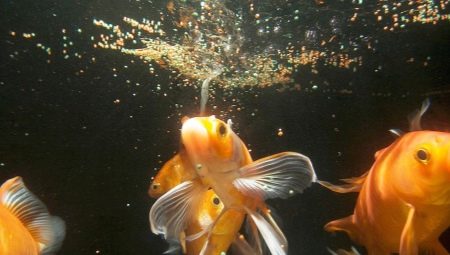Fish are one of the most popular pets to date. Some give birth to fish, because they believe that with them the least trouble is, others just like to watch their life in the aquatic environment. Many aquarists are interested in the question of who can leave their pets during the period of a long absence of the owner. Owners of fish should know exactly how much their livestock can endure without food, and what to do with the aquarium and adding new water to it. In this article, we’ll just talk about such sensitive issues and try to figure it out.
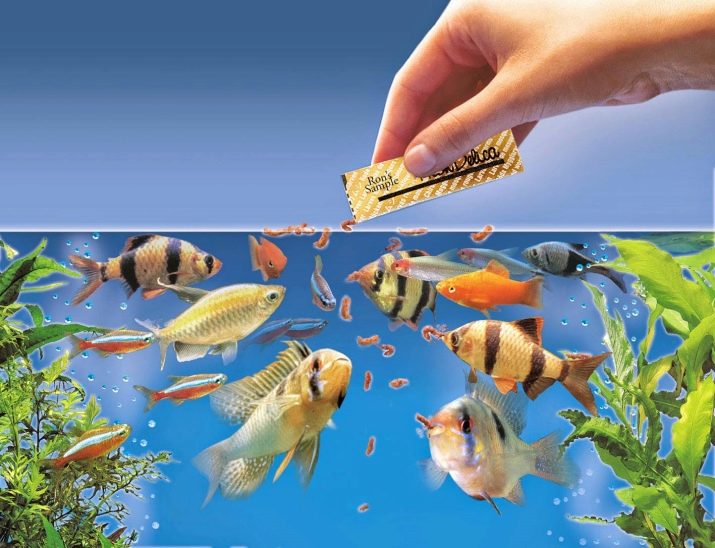
Aquarium fish and food
Before starting the discussion of the main issues, let's briefly talk about what the inhabitants of the aquarium eat. Fish living not in the natural habitat, but in the aquarium have a great advantage over the "wild" relatives. The menu of pets is much more diverse. They can eat special and live food, moths, plants.
The latter include algae and moss, which is usually found in every aquarium. Also, fish can eat microorganisms that are formed on all elements of the decor and on the stones.
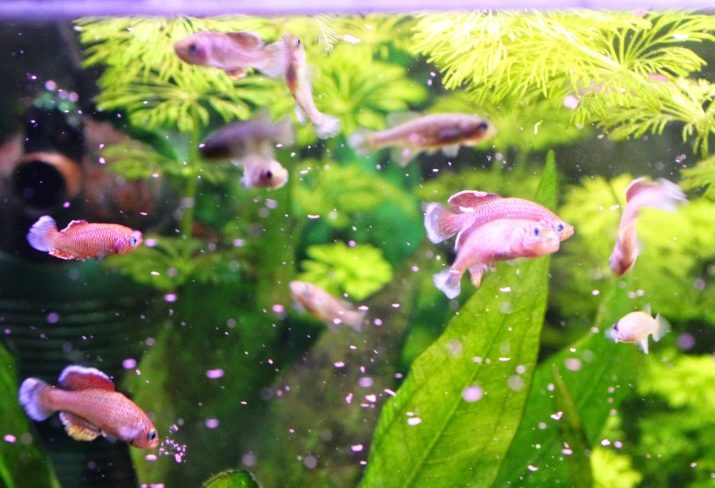
Most aquarists prefer feeds that can be bought at a specialized pet store or veterinary pharmacy.
There are certain rules for feeding aquarium fish.
- They can not be overfed. Almost all of these aquatic animals are insatiable, they can eat continuously, but in most cases it is fraught with consequences - from obesity to the uplift of the abdomen (death).
- The diet should be varied. There are many different types of dry food, as well as insects and larvae, which fish like.
- Be sure to consider the taste preferences of pets, because the fish can be a vegetarian or a predator.
After clarifying all the nuances regarding the diet and taste preferences, you can begin to clarify the main issue.
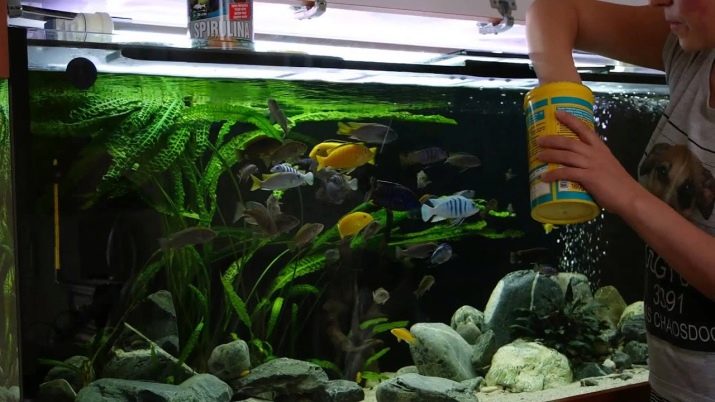
Possible fasting periods
To begin with, I would like to say that each type of fish is individual.
In many ways, the need for food depends on the size, appetite and activity of the animal.
Here are some good examples.
- Barbus - A small aquarium fish that can be called a comet. She is so active that she constantly needs top dressing in order to gain strength and energy.
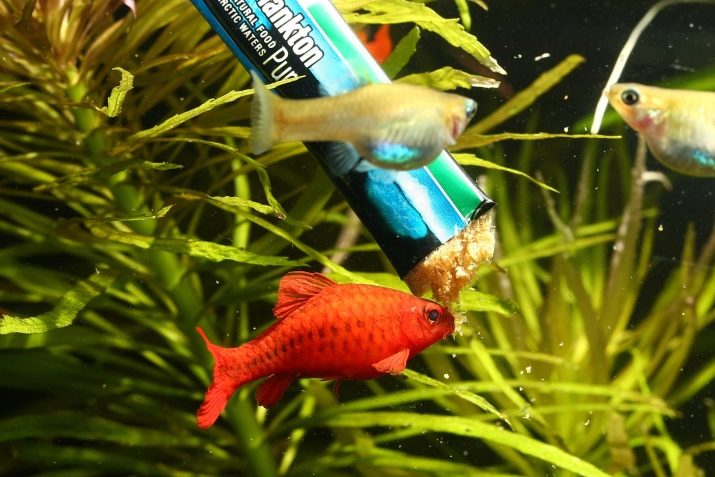
- Cockerel or catfish - Slow fish, which is not peculiar to "fly" around the aquarium, but it is preferable to bask on the pebble. That is why the amount of food needed for such a variety is minimal.
Based on observations and experience, experts concluded that there are fish that can survive 2 days without food, and there are those who last 6-7 days.
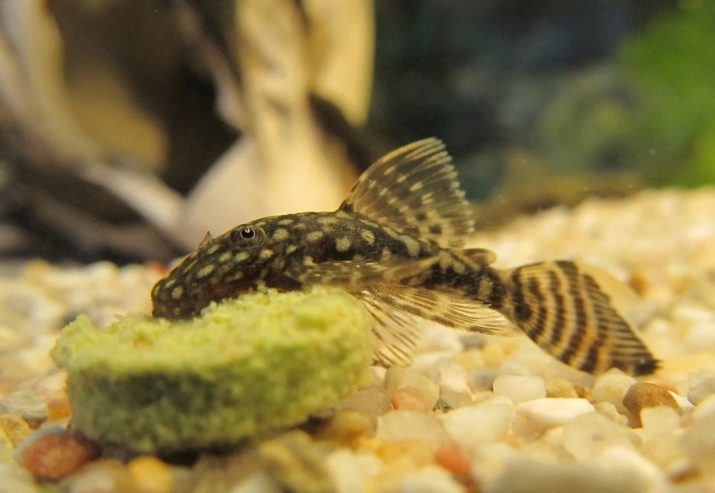
Of course, there are champions for whom even weeks and months of hunger strike are not terrible.
Recommendations and Tips
If, however, parting is inevitable, consider the following recommendations, following which you can not worry at all about the well-being and condition of the inhabitants of the aquarium during your absence.
- A few weeks before a vacation or a business trip, start feeding the fish a quality food that contains a lot of calories, but do not overfeed. This manipulation will allow animals to gain weight and store energy.
- Buy in the pet shop the so-called “long-playing” feed, they tend to not dissolve in water for a long time, and fish can eat them for a long time. But keep in mind that such feed, if not eaten in time, can affect the condition of the water, worsen it and cause the appearance of various bacteria.
- Equip the aquarium, if possible, with an automatic feeder. This mechanism is equipped with a timer, and feed is poured into the tank automatically according to a predetermined schedule. All such devices are designed to use dry food, but this option is better than a hunger strike.
- If fry swim in the aquarium, contact someone for help feeding the babies in your absence. They can not be left without food for a long time.
- Be sure to tidy up the aquarium - wash it well, disinfect, change the water, clean the filter, make sure that the water heater and lighting timer work correctly.
- After returning, do not fanatically start immediately fattening the fish. Keep in mind that during your absence, animals can go hungry and begin to destroy food without a sense of measure - this will not lead to anything good. Food should be given in small doses and at regular intervals. The cold-blooded organism must adapt and get used to the fact that food began to flow. Also, the first few days it is best to feed the animal with live food, rather than dry.
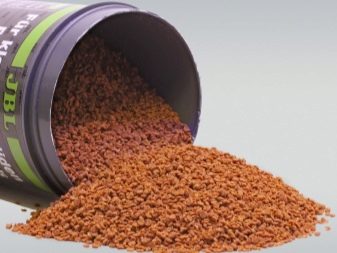
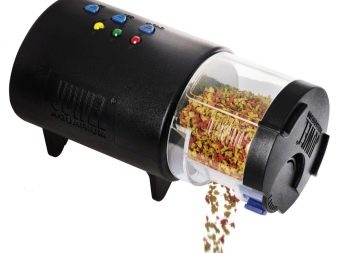
Given all the above recommendations, you can leave your favorites and not worry that they will not survive until your return.
Overview of the fish feeder see below.
